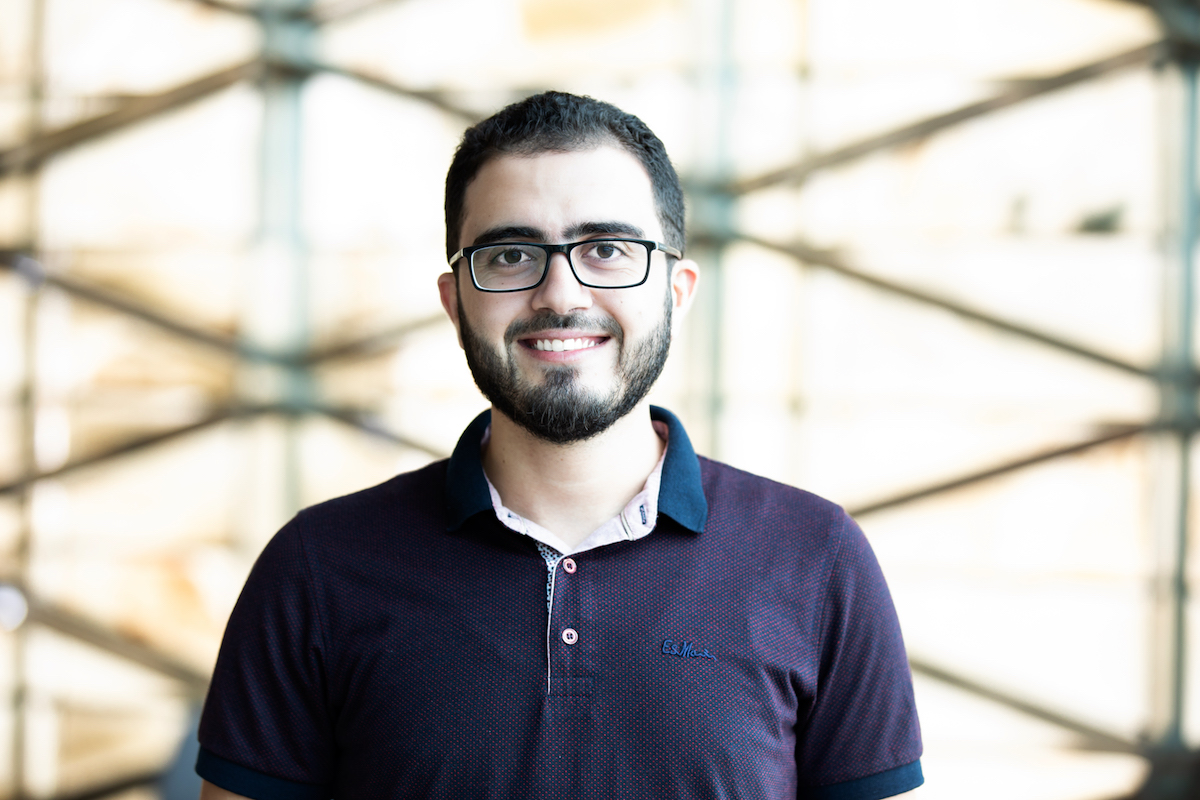KAUST Ph.D. student wins best paper award at EMBC ‘18

KAUST Ph.D. student Mohamed Bahloul received a best paper award at the recent 40th International Conference of the IEEE Engineering in Medicine and Biology Society (EMBC ‘18) in July. Photo by Sarah Munshi.
-By David Murphy, KAUST News
Mohamed Abdelwaheb Bahloul, a first-year Ph.D. student in KAUST Associate Professor Taous-Meriem Laleg-Kirati's Estimation Modeling and Analysis (EMAN) research group, received the best paper award for the Africa and Middle East region at the recent 40th International Conference of the IEEE Engineering in Medicine and Biology Society (EMBC '18). Bahloul was one of five finalists selected from each of the EMBS geographical areas (North America, Latin America, Africa and the Middle East and Asia-Pacific).
EMBC '18, which was held in Honolulu, Hawaii, from July 17 to 21, is one of the world's largest and premier conferences in the field of biomedical engineering. All paper submissions were peer-reviewed and the finalists were selected based on the merits of submissions and corresponding nominations.
Pleased to win
Bahloul's winning paper detailed a three-element fractional-order viscoelastic Windkessel model he and his colleagues worked on in the EMAN group. The proposed model incorporates a fractional-order capacitor that substitutes the ideal capacitor of standard three element Windkessel model.
"When I received the nomination email, I was really very pleased, " he said. "It was a complete surprise to have been nominated given the high standard of the competition. I am very proud that the research works we carry out have made a positive impact and received the award. I would really like to thank my advisor Professor Meriem Laleg who supported me and believed in my ideas."
Future research drive
Prior to joining the M.S./Ph.D. program in electrical engineering at KAUST in the spring of 2016, Bahloul, a native of Sfax, Tunisia, obtained a master's degree in microelectronic systems from the University of Montpellier, France. He also holds a master's degree in embedded systems from the National Engineering School of Sfax (ENIS). He completed his undergraduate studies in microelectronic and new technology at ENIS in June 2014.
Bahloul's ultimate research goal at KAUST is to become a technological leader in bioengineering—and specifically in cardiac physiology characterization—who can develop novel technologies that address a variety of modern healthcare challenges.
"I feel that this [award] is just a beginning and there is a lot more that I need to achieve. There are higher pinnacles that I need to touch by innovating effective technological solutions that hospitals can incorporate into their existing infrastructures and methodologies—in a relatively short term—that can improve both the quality and the efficiency of healthcare," he stated.
"In the future, we see that our Windkessel model can be used as a diagnosis tool to predict cardiovascular diseases even before they happen. In other words, we hope that we can save lives from this leading cause of death worldwide," Bahloul concluded.
Related stories:
- Award-winning algorithm aids observation
- Dr. J. K. Vijayakumar elected to International Association of University Libraries board of directors
- Ph.D. student Maha Alamoudi awarded ICSM Prize
- Dr. Youssef Belmabkhout honored by ASRT

